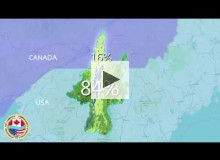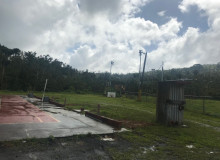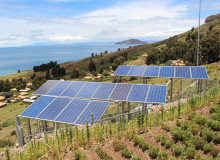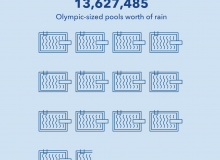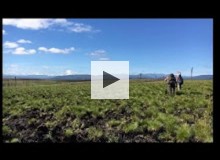Natural Disasters
Storms are getting bigger. Droughts are getting longer. As the climate changes, natural disasters are ramping up - here's how we're dealing with them, trying to prevent the worst consequences and learning how to clean up after them.
George Washington University
When I arrived in Hampton, Virginia, I met with Jamie Chapman, who has lived in the area for 20 years. Chapman is proud of his waterfront home, which he bought 1998 after the cottage survived double northeasters.
Planet Forward Correspondent | SUNY Plattsburgh
Water management is not always thought of as an international issue, but for unique watersheds like Lake Champlain, flood mitigation has become a concern for all area locals, regardless of borders.
Northwestern University
Separated by miles of ocean and a 2-hour drive, or a 50-mile hike, through the jungle, Guna Yala and Kalu Yala are two of Panama’s most sustainable communities, but they also are starkly different. Medill's Luodan Rojas reports.
Northwestern University
Puerto Rico's island-wide blackout Wednesday demonstrates how vulnerable the energy infrastructure remains nearly seven months after the hurricane. How can an entire island still suffer from power volatility?
The University of Mississippi
The National Center for Computational Hydroscience and Engineering at the University of Mississippi conducts research on natural disasters, erosion, dam simulations, and much more.
Elon University
In the aftermath of a devastating hurricane, Puerto Rico faces a challenges to reinvent their power system. Pushes for renewables are embraced by locals.
State University College at Buffalo
By comparing Harvey to other natural disasters, we can see that this unfortunately ordinary occurrence has become extraordinary.
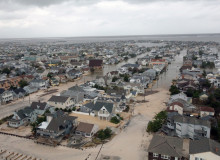
Storm surges during Hurricane Sandy. (Master Sgt. Mark Olsen/Flickr)
Rutgers University—New Brunswick
As coastal and inland communities alike grapple with the implications of costlier floods and a lack of flood-proof infrastructure, governments have increasingly turned to purchasing and vacating flood-prone properties.
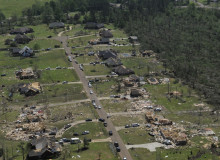
Tornado damage in Louisville, Miss., in April 2014. (Maj. Andy Thaggard/National Guard)
University of Mississippi
Vague tornado watches and warnings could soon become a thing of the past, thanks to research at the National Center for Physical Acoustics.
SUNY-ESF
In the summer of 2016, a team of researchers were dropped off by helicopter in the back-country of Denali National Park. Like many scientific undertakings, it did not go as expected... One member of the trip was Kyle Turchick. This video portrays... Read More


